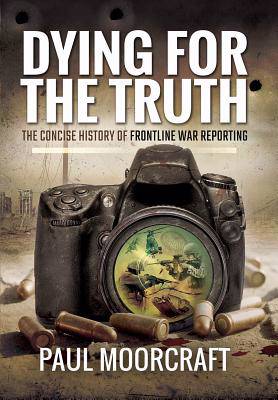
- Retrait gratuit dans votre magasin Club
- 7.000.000 titres dans notre catalogue
- Payer en toute sécurité
- Toujours un magasin près de chez vous
- Retrait gratuit dans votre magasin Club
- 7.000.000 titres dans notre catalogue
- Payer en toute sécurité
- Toujours un magasin près de chez vous
Dying for the Truth
The Concise History of Frontlinewar Reporting
Paul Moorcraft
Livre relié | Anglais
34,95 €
+ 69 points
Description
War correspondents are crucial to democracy and the public's discovery of the truth. Without the media, the temptation to manipulate events with propaganda could be irresistible to politicians of all hues. Dying for The Truth examines how journalists have plied their trade from the Crimean War to the present. Paul Moorcraft, a veteran journalist, discusses how correspondents' considerable influence has shaped the actions of politicians and military commanders as well as public opinion, and reveals how authority figures now view the media as potentially valuable tools. Technical developments and the "twenty-four-hour news cycle" have inevitably changed the nature of war reporting. Today news bureaus are apt to learn of developments before the higher chains of command. The author comments on key milestones that have contributed to this evolution. Using his own and others' experiences in recent conflicts, including Korea, the Falklands, the Balkans, Iraq, and Afghanistan, Moorcraft shares an aspect of warfare that is all too often overlooked but can be crucial to the outcome. The public's attitude toward the day-to-day conduct of war is becoming ever more significant and this fascinating book examines why.
Spécifications
Parties prenantes
- Auteur(s) :
- Editeur:
Contenu
- Nombre de pages :
- 224
- Langue:
- Anglais
Caractéristiques
- EAN:
- 9781473879157
- Date de parution :
- 15-02-17
- Format:
- Livre relié
- Format numérique:
- Genaaid
- Dimensions :
- 152 mm x 229 mm
- Poids :
- 493 g







